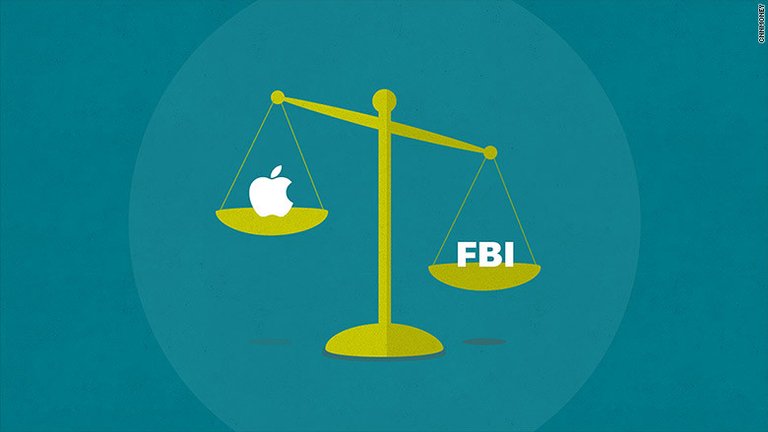Apple's court fight against the FBI isn't so straightforward.
To drive Apple to enable the FBI to open a San Bernardino shooter's iPhone, a government justice judge conjured the All Writs Act, which enables courts to influence an organization to turn over a client's information to law implementation.
The legitimate contention Apple is required to utilize can be summed up this way: Code is ensured discourse, so the legislature can't propel Apple to compose another adaptation of iOS any more than it can drive a writer to compose a story.
Apple (AAPL, Tech30) has expressed that the court's understanding of the All Writs Act is excessively broad. Going along would jeopardize possibly a great many Apple clients by making a secondary passage that anybody could misuse, the organization says.
There is some point of reference that code is ensured discourse. In Bernstein versus U.S. Division of Justice, the U.S. Court of Appeals for the Ninth Circuit decided that the code in a designer's product was ensured by the First Amendment.
"Apple's case raises some genuinely clear First Amendment issues," said Robert Corn-Revere, a lawyer at DavisWrightTremaine who spoke to Dan Bernstein in his point of interest case. "It's not a major jump to state the dialect for PCs that progressions guidelines into activities is a piece of an open procedure."
However, Corn-Revere additionally forewarned that Bernstein, which was never taken up by the U.S. Preeminent Court, is the main case that has chosen the issue.
An Apple representative said that the organization isn't talking about its lawful technique in front of its reaction to a court arrange. That reaction is expected on Friday.
Demonstrating that code is secured discourse isn't the greatest obstruction Apple faces. Center to Apple's contention against composing another rendition of its working framework is that, by going along, it will make its clients less secure. However, Apple would need to defeat a very long time of point of reference in the way that organizations work with law implementation.
"I'm thoughtful, yet I can't think about any specialist that says that you can avoid your commitments to conform to the police since you don't believe they'll keep the data sufficiently secure," said Lawrence Lessig, a Harvard Law teacher and established law researcher.
Lessig noticed that the security issue puts forth Apple's defense one of a kind.

"On the off chance that a bank has vault and the police have a court order, at that point there's most likely that the bank needs to open the vault," Lessig said. "Be that as it may, when bank opens vault, there's no worry that it's making each other vault perilous."
The issue with the case, Lessig stated, is that Apple will need to do a great deal of work to persuade the court that there's another issue here. It needs to demonstrate that there's something else about its case.
"The Fourth Amendment says on the off chance that you have a warrant, you need to open the safe," Lessig said. "That is a convincing contention. It sounds like fingers on a slate to individuals in the innovation business, however it will be difficult to persuade no less than five judges on the Supreme Court generally."